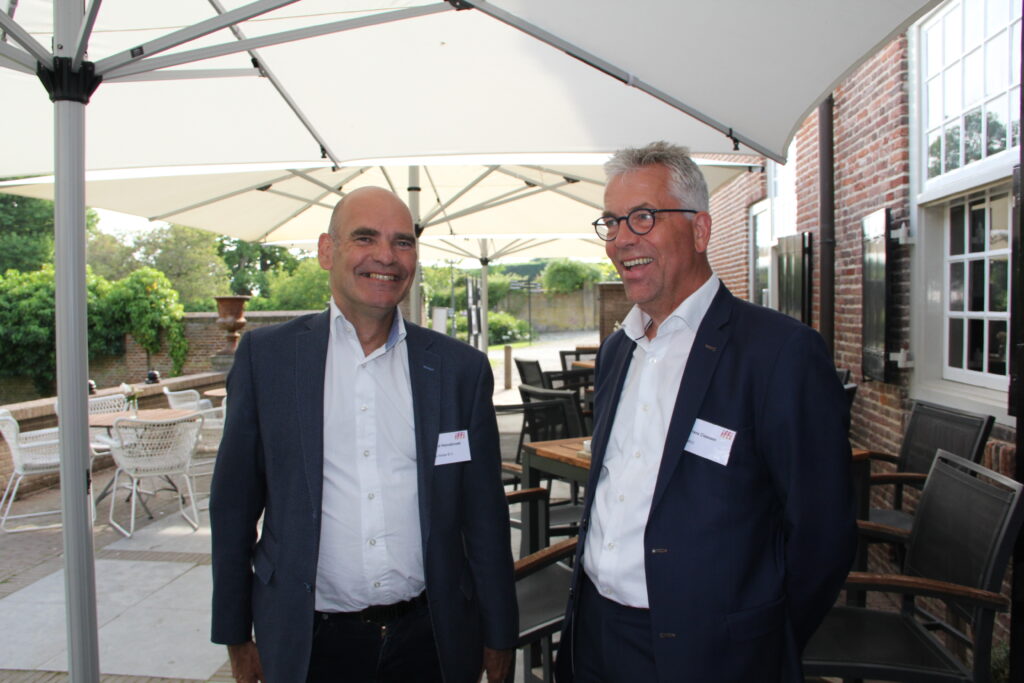
REVIEW event ‘Impact of Ukraine’
Last Wednesday, members of IFFI grouped together for another insightful day of lectures. This time, themed accordingly with ongoing events: the war in Ukraine. How does the war in Ukraine impact the food industry?
That is the question Sebastiaan Schreijen, Dirk Lodewijk and Frans Claassen aimed to answer.
Halbe Vogel introduced the event, specifying the importance of looking at both the short-term and the long-term future.
Rabobank’s Specialist of Consumer Foods, Sebastiaan Schreijen, was our first guest speaker. “We have not experienced such an inflation in at least twenty years.”
When we think of the impact of the war, we tend to think of the wheat that Ukraine exports. Ukraine, also called the breadbasket of Europe. “By naming it such, we actually undermine the impact. There will not only be a shortage of wheat, but also of sunflower oil. Not to forget gas and fertilizer, of which a large percentage is normally imported from Belarus and Russia.”
As Europeans, we are lucky. We have barely noticed any heavy consequences of the war yet, aside from the increased gas and oil prices. Prices in the supermarket have not increased in price so far, partly because the supermarket compensates for the higher prices with their margins.
The relationship between client and supplier changes. Offers are accepted within much shorter time delays. Production spaces are full.
The cost price inflation shall be transferred to the consumer in the near future.
On a consumer level, Schreijen also revealed two possible outcomes: either consumers will downgrade and buy less expensive products at the supermarket. Or, they will instead choose carefully what they spend their money on.
After this first lecture, members enjoyed a delicious dinner catered by restaurant Bentinck, on the sunny terrace of the Poortgebouw, with a view on Kasteel Amerongen. Various taste experiences served in small portions, including a starter and desert.
Back to business, Dirk Lodewijk, CEO at Royal Koopmans demonstrated to us the advantages of local sourcing. With Koopman’s product Nedertarwe, locally grown wheat for high end bakeries, the company did not have to fear shortage of supply from Ukraine. Against the stream of other wheat producers Koopmans decided to develop, together with farmers and chefs, wheat from Dutch soil. After a decade the wheat was launched in the winter of 2021.
Though it is now a success story, getting to that result took many years of trial and error, market research and expertise. This is what Lodewijk elaborated on during the lecture: what to consider when developing a sustainable product. Patience, time, financial investment, a lot of consumer research. Taking actions towards sustainability is great, but it demands hard work and that is something companies should be aware of.
The last presentation was given by Frans Claassen, Managing Director at MVO.
“The oil industry is experiencing the perfect storm,” states Claassen. Yes, today, we are at risk of supply shortage of sunflower oil. However, what we do not talk about is that the three other largest edible oil types have failed this year due to climate circumstances: rapeseed, soybean and palm oil.
Not only political circumstances but climate change may backfire very heavily on agriculture and thus on the food ingredients industry.
The reality we face now is the need to replace sunflower oil with another oil. Sunflower oil as an ingredient is present in many supermarket products. The oil that is to replace sunflower needs to satisfy the same criteria for that product: deliver mouthfeel, similar shelf life, taste and structure. This is a challenge. “There are many changes to be made. Think only of product labelling.”
Amid the storm, there is also good news. The EU commission gave member states permission to deviate – it is an agreement on labelling leniency.
After all the graphs we saw this day showing huge food prices increases, Halbe ends the lectures with “Let’s hope for a stable flat price line over a year.”
This is indeed what we hope for.
The day was ended on the terrace, where members gathered to converse about the lectures and share insights. After a few glasses of wine or beer, we closed the evening.
Guest speakers were given a sunflower bouquet as a thank you and symbol for Ukraine.
For all photos of the event go to Events > Impact of Ukraine > (tab) Photos
